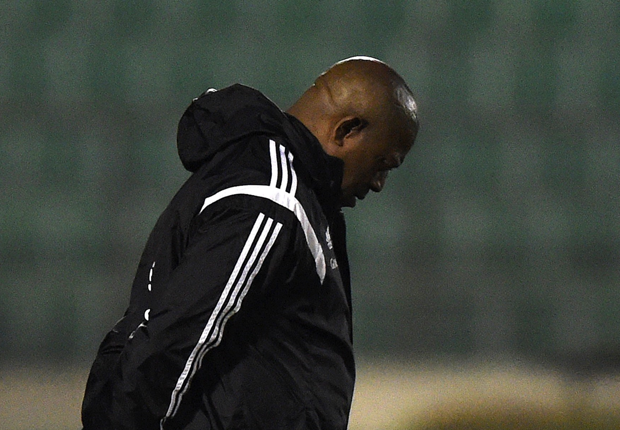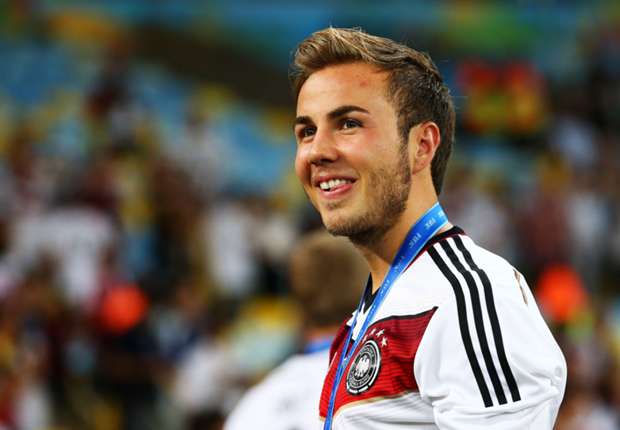The Mannschaft's World Cup win ought to have taught the NFF a thing or two about long-term planning and continuity in the dugout
The 20th edition of the FIFA World Cup in Brazil ended with the Germans standing at the top of the mountain. The Mannschaft emerged victorious after two previous back-to-back third-place finishes at the showpiece. Beyond their victory, they leave several lessons for rest of the world’s national sides to learn from.
Results-wise, Nigeria did not fail as woefully as some claim. Neither did they perform so well as a few others also suggest.
Reaching the second round of the tournament is not an achievement to be sniffed at, as was exemplified by heavyweights like Spain, Portugal, England and Italy, who all failed to make it past the group stages. However, it was evident that Stephen Keshi's technical and tactical deficiencies were on display at the tournament as the Super Eagles struggled against their opponents, repeatedly making the same mistakes game after game.
Take, for example, the fact that they could only manage two efforts on target from over 24 corner kicks over their four matches.
It was quite obvious that the team had no designated set-piece taker as the likes of Ahmed Musa and Osaze Odemwingie struggled to send decent crossings into the opposing team's defensive half. Against France, despite enjoying the larger share of possession and attacking forays into the final third for large parts of the game, Keshi's boys failed to find the much needed rhythm to create clear cut chances and looked more like an individual attacking setup rather than the offensive of a well-oiled machine.
That Keshi needed a lacklustre goalless draw against the Iranians before he could arrive at his best possible starting line up only goes to show the gaffer's reluctance in abandoning his unending style of going into tournaments with an otherwise experimental team and technique.

Keshi | Got away with another slow start to a tournament
Earlier, at both the African Cup of Nations and the Championship of African Nations competitions, Keshi's team had to produce unconvincing displays in their first few games before he could arrive at his best tactics for the team.
Why can the Big Boss not get this experimentation out of the way in friendly matches?
Perhaps the team's results at the end of both tournaments shielded him from seeing his errors, but the World Cup has certainly taught him that good coaches usually get their teams ready for big competitions beforehand and not during the course of such competitions.
To further buttress this truth, all the eight nations that qualified for the quarter final won their opening matches.
Germany came out of the blocks quickly, beating Portugal 4-0 before going on to victory. There are one or two further things that Keshi and Co. could learn from the world champions.
It took the German national team coach, Joachim Low eight years to win a trophy after one World Cup third-place finish and one European Championship final and semi-final appearance.
This goes to show that provided that a competent gaffer is in the coaching position, he should be allowed to carry on with the team on a long term basis as it will help to ensure a stronger team at the end.
Had the German Football Association succumbed to calls for the removal of Low in 2012 after the team's semi-final defeat at the hands of Italy, the glorious outing in Brazil just two years after might not have been possible.

Gotze | Germany reaping the rewards of long-term planning
Despite winning the African championship and breaking several records at this World Cup, the NFF have failed to tie Keshi down to a long-term contract nor reward the manager fairly for his efforts to date.
Indeed, President Goodluck Jonathan has been required to intervene to encourage the Big Boss to remain in his post.
Surely, the federation need to realise that despite his foibles, Keshi has a good thing going with the Super Eagles and everything should be done to encourage him to continue in his position.
Continuity in the dugout is imperative.
Similarly, Germany are reaping the rewards of a well thought-through and well-implemented youth development programme.
All of the 23 players that were part of the 2014 World Cup-winning team were involved in the various age grade national teams counting from the national U-16 team to the U-21 national team. The match-winner against Argentina in the final, Mario Gotze, was part of the German U-17 team that drew with their Nigerian counterparts five years ago in Abuja at the FIFA U-17 World Cup.
Three of the Super Eagles team who represented the nation at this year’s World Cup were also part of this team, namely, Kenneth Omeruo, Ogenyi Onazi and Ramon Azeez.
More young players need to be integrated into the senior side after they have graduated from the youth teams.
For this particular lesson to be realised, there is need to avoid the selection of over-aged players for the various age grade teams in FIFA tournaments, as this will go a long way to ensuring that these genuinely young players will form the core of the main national team in years to come.
There are several further things that Germany has demonstrated to the watching world. These will be covered by Goal Nigeria in the coming weeks, on a longer-term basis, we can watch on and hope that the NFF take on board the lessons of planning and continuity that reaped such gleaming rewards in Brazil.
-GOAL

0 comments:
Post a Comment